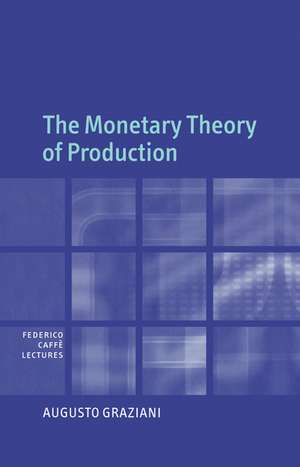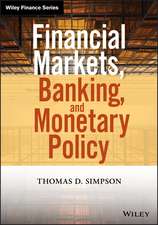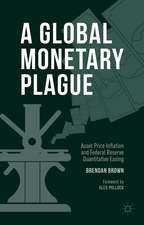The Monetary Theory of Production: Federico Caffè Lectures
Autor Augusto Grazianien Limba Engleză Paperback – 18 mar 2009
| Toate formatele și edițiile | Preț | Express |
|---|---|---|
| Paperback (1) | 236.16 lei 3-5 săpt. | +9.40 lei 6-10 zile |
| Cambridge University Press – 18 mar 2009 | 236.16 lei 3-5 săpt. | +9.40 lei 6-10 zile |
| Hardback (1) | 816.40 lei 6-8 săpt. | |
| Cambridge University Press – 3 sep 2003 | 816.40 lei 6-8 săpt. |
Din seria Federico Caffè Lectures
-
 Preț: 289.11 lei
Preț: 289.11 lei -
 Preț: 280.91 lei
Preț: 280.91 lei - 11%
 Preț: 462.32 lei
Preț: 462.32 lei -
 Preț: 405.10 lei
Preț: 405.10 lei -
 Preț: 243.29 lei
Preț: 243.29 lei -
 Preț: 366.03 lei
Preț: 366.03 lei -
 Preț: 366.03 lei
Preț: 366.03 lei -
 Preț: 231.98 lei
Preț: 231.98 lei -
 Preț: 323.87 lei
Preț: 323.87 lei -
 Preț: 281.67 lei
Preț: 281.67 lei
Preț: 236.16 lei
Nou
Puncte Express: 354
Preț estimativ în valută:
45.19€ • 49.07$ • 37.96£
45.19€ • 49.07$ • 37.96£
Carte disponibilă
Livrare economică 02-16 aprilie
Livrare express 18-22 martie pentru 19.39 lei
Preluare comenzi: 021 569.72.76
Specificații
ISBN-13: 9780521104173
ISBN-10: 0521104173
Pagini: 188
Dimensiuni: 140 x 216 x 11 mm
Greutate: 0.25 kg
Editura: Cambridge University Press
Colecția Cambridge University Press
Seria Federico Caffè Lectures
Locul publicării:Cambridge, United Kingdom
ISBN-10: 0521104173
Pagini: 188
Dimensiuni: 140 x 216 x 11 mm
Greutate: 0.25 kg
Editura: Cambridge University Press
Colecția Cambridge University Press
Seria Federico Caffè Lectures
Locul publicării:Cambridge, United Kingdom
Cuprins
1. Introduction; 2. Neoclassical monetary theory; 3. A monetary economy; 4. The creation of bank money; 5. The distribution of income; 6. The role of financial markets; 7. Real and monetary interest; 8. Implications for monetary policy; 9. Concluding remarks; References; Index.
Notă biografică
Descriere
Augusto Graziani challenges traditional theories of monetary production, arguing that a modern economy based on credit cannot be understood without a focus on the administration of credit flows.










